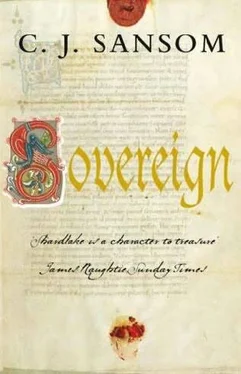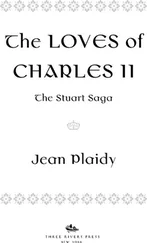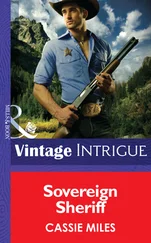‘Yes, he was not the gentle saint some people paint him.’
‘But he had a good turn of phrase. I have been reading what he said about the Wars between the Roses last century. “These matters be Kings’ games, as it were stage plays, and for the most part played upon scaffolds.” ’
‘So they were. Upon bloody fields of battle too.’
‘Indeed. But sit; take some wine before we begin. You look as though it has been a hard morning.’
‘Thank you.’ As I took a cup my eye strayed to the piles of books. ‘You have a most rare collection, sir.’
‘Yes, I have many old monkish books. They are not theological works, that would have me under surveillance from the Council of the North, but I have saved some valuable works of history and philosophy. For their interest, and their beauty too. I am something of an antiquarian, you see. It has been an interest all my life.’
‘That is a worthy task, sir. There was much wrong with the monasteries, but so much learning and beauty has gone to the fire. I have seen pages written with care hundreds of years ago used to wipe down horses.’
Wrenne nodded. ‘I thought we would be of like mind, brother. I can tell a scholar. There has been a great cull of monastic libraries in York these last three years. St Clement’s, Holy Trinity, above all St Mary’s.’ He smiled. ‘The antiquarian John Leland was here in the spring. He was most interested in the library I have collected upstairs. Even a little jealous, I think.’
‘Perhaps I may see it some time.’
‘Indeed.’ Wrenne nodded his leonine head. ‘But I fear we must study some lesser documents today. The petitions to the King.’ He smiled ruefully. ‘Where do you practise, Brother Shardlake?’
‘Lincoln’s Inn. I am lucky, I have a house hard by in Chancery Lane.’
‘I studied at Gray’s Inn. Many years ago.’ Wrenne smiled. ‘It was 1486 when I came to London. The King’s father had not been on the throne a year.’
I did a quick calculation in my head: fifty-five years ago, he must be well over seventy. ‘But you returned to practise in York?’ I asked.
‘Ay, I was never at ease in the south.’ He hesitated, then said, ‘I have a nephew at Gray’s Inn, the son of my late wife’s sister. He went down there and stayed. Perhaps you may have heard of him.’ He looked at me keenly. ‘Martin Dakin. He would be near your age now, a little older. Just past forty.’
‘No, I do not know him. But there are hundreds of barristers in London.’
Wrenne looked uncomfortable. ‘There was a bad fratch, a family quarrel, and we lost touch.’ He sighed. ‘I would like to see him again before I die. He is my only family now, you see. His parents died in the plague three years ago.’
‘Many seem to have died then.’
He shook his head. ‘York has had a terrible time these last five years. The rebellion in 1536, then in 1538 the plague. It returned in 1539 and again last year, though mercifully this year we have been spared.’ He smiled wryly. ‘Otherwise the King would not have come. His harbingers have been around the hospitals all summer, making sure there have been no cases. Instead this year we have had the new conspiracy. Troubled times.’
‘Well, let us hope for a better future now. And I would gladly take a message to your nephew in London, sir. If you wished.’
‘Thank you.’ Wrenne nodded slowly. ‘I will think on that. I had a son, who I dreamed would follow me in the law, but he died when he was five, poor nobbin.’ Wrenne looked into the fire, then shrugged and smiled. ‘Forgive an old man’s gloomy talk. I am the last of my line and some days it weighs on me.’
I felt a catch at my throat, for his words made me think of my father; I too was the last of my line.
‘We have noticed, sir,’ Barak said, ‘that security in the city seems very great. We saw some Scotch turned away at Bootham Bar.’
‘Yes, and all the stout vagabonds are being cleared from the city. The beggars will be gone from the Minster tomorrow. Poor caitiffs. Security is tight.’ Wrenne hesitated, then added, ‘You must know, sir, the King is not popular up here. Not among the gentry, though now they bow and scrape, and even less among the common people.’
I remembered Cranmer’s scathing words about northern papists. ‘Because of the religious changes, that caused the rebellion?’
‘Ay.’ Wrenne clasped his hands round his goblet. ‘I remember the rebellion. The King’s agents were closing the small monasteries and assessing church property. Then suddenly the commons erupted all over Yorkshire. It was like a wildfire.’ He waved a large, square hand where a fine emerald ring glinted. ‘They elected Robert Aske leader and within a week he had marched into York at the head of five thousand men. The City Council and the Minster authorities were terrified. This was an explosive crowd of rough peasants who had turned themselves into an army. So they agreed to obey Aske; the church authorities held a celebratory Mass for him in the Minster.’ He nodded at the window. ‘I watched the rebels processing into the Mass from there; thousands of them, all with swords and pikes.’
I nodded reflectively. ‘And they thought they could make the King agree to reverse the religious changes.’
‘Robert Aske was a naïve man for a lawyer. But if the King had not tricked them into disbanding his army I believe they could have taken the whole country.’ He looked at me seriously. ‘The discontent in the north goes back a very long way. To the Striving between the Two Roses last century. The north was loyal to King Richard III and the Tudors have never been popular. The rebellion was about more than religion, too. The Dalesmen sent round tracts by a “Captain Poverty” full of complaints about high rents and tithes. When the religious changes came -’ he spread his big hands – ‘it was the straw that broke the camel’s back.’
‘King Richard?’ Barak asked. ‘Yet he seized the throne, and murdered the rightful heirs. The Princes in the Tower.’
‘There are those who say it was the King’s father that killed them.’ He paused. ‘I was a boy when King Richard processed through York after his coronation. You should have seen the city then. People hung their best carpets from the windows all along the way, petals were showered on him as he rode by. It is different today. The common folk are reluctant even to lay gravel before their doors to smooth King Henry’s way, for all the council have ordered it.’
‘But the quarrels of the Two Roses can hardly have meaning today,’ I said. ‘The Tudors have been on the throne near sixty years.’
‘No?’ Wrenne inclined his head. ‘They say after the conspiracy was uncovered this spring, the old Countess of Salisbury and her son were executed in the Tower.’
I recalled the story of the aged countess’s dreadful death; it had circulated in London that summer. Imprisoned without charge, she had been led to the block where an inexperienced boy had hacked at her head and shoulders; the King’s executioner had been busy in York, despatching the conspirators.
‘She was the last Yorkist heir,’ Wrenne said quietly. ‘Was that not done because the King still fears the name Plantagenet?’
I sat back. ‘But surely the conspiracy this year was mainly about religion, like the Pilgrimage of Grace?’
‘Old loyalties played their part too. The King killed the countess and her son to make sure.’ He raised his eyebrows. ‘And they say his young children have disappeared into the Tower?’
‘No one knows.’
‘More Princes in the Tower.’
I nodded slowly. I remembered Cranmer saying, ‘This time they called him tyrant; many meant to overthrow him.’
‘I see more clearly now why there is such tight security for this visit,’ I said. ‘And yet, the house of Tudor has brought safety and security to England. No one can deny that.’
Читать дальше












